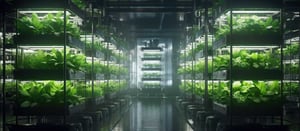WHAT IS ISO 9001 CERTIFICATION?
ISO 9001 is an international standard for Quality Management Systems (QMS). It provides a framework for organizations to ensure consistent quality in their products and services, enhancing customer satisfaction and operational efficiency.
ISO 9001 focuses on several key principles, including customer focus, leadership, engagement of people, process approach, improvement, evidence-based decision making, and relationship management.

WHAT IS QMS?
A Quality Management System (QMS) is a structured framework that organizations establish and maintain to ensure consistent quality in their products or services, meeting customer and regulatory requirements.
KEY COMPONENTS OF ISO 9001
ISO 9001 includes key components crucial for effective quality management in organizations. It revolves around establishing a tailored Quality Management System (QMS), ensuring leadership commitment to resource allocation and goal alignment.
Planning involves systematic risk assessment, setting quality objectives, and defining actions. Resource management covers provision and competence. Process control ensures consistent delivery, while performance evaluation monitors and improves processes. Continuous improvement is driven through corrective actions and enhancing efficiency and customer satisfaction, creating a robust quality framework for organizations.


REQUEST A QUOTE FOR ISO 9001 CERTIFICATION:
Our team will review your request and provide a detailed quote tailored to your specific ISO 9001 requirements.
REQUIREMENTS FOR ISO 9001:
ISO 9001 sets forth requirements for organizations to establish and maintain a Quality Management System (QMS) focused on consistently meeting customer and regulatory requirements.
Key elements include leadership commitment to the QMS, planning to address risks and opportunities while setting quality objectives, providing necessary resources and ensuring personnel competence, controlling processes related to products and services, and evaluating performance through monitoring and analysis.
Continuous improvement is emphasized through actions like corrective measures and addressing nonconformities, aiming to enhance customer satisfaction and overall organizational efficiency.

BENEFITS OF ISO 9001 FOR MY ORGANIZATION:
Improved Efficiency: Streamlined processes and better resource utilization lead to increased operational efficiency.
Enhanced Customer Satisfaction: Consistently meeting customer requirements and delivering quality products/services enhances satisfaction and loyalty.
Competitive Advantage: Certification demonstrates credibility, potentially opening new business opportunities and markets.
Risk Management: Systematic risk assessment and mitigation strategies reduce operational risks.
Continuous Improvement: Emphasis on continual improvement fosters innovation and efficiency gains over time.
Compliance and Consistency: Ensures compliance with regulatory requirements and standardizes processes for consistent outcomes.
Employee Engagement: Clear roles, responsibilities, and processes enhance morale and engagement among employees.
THE PROCESS FOR IMPLEMENTING ISO 9001 TYPICALLY INVOLVES SEVERAL KEY STEPS:
-
Commitment and Leadership: Top management commits to implementing ISO 9001 and provides leadership throughout the process.
-
Initial Assessment: Conduct a gap analysis to assess current processes against ISO 9001 requirements and identify areas needing improvement.
-
Planning: Develop an implementation plan outlining goals, timelines, resource requirements, and responsibilities.
-
Documentation: Create or update documentation, including a Quality Manual, procedures, work instructions, and records required by ISO 9001.
-
Training and Awareness: Ensure employees understand ISO 9001 requirements through training and raise awareness across the organization.
-
Implementation: Implement the QMS across all relevant processes, ensuring procedures are followed and necessary changes are made.
-
Internal Audit: Conduct internal audits to assess QMS effectiveness and identify nonconformities.
-
Management Review: Review QMS performance with top management to ensure it meets objectives and identify opportunities for improvement.
-
Corrective Actions: Take corrective actions to address nonconformities and improve QMS effectiveness.
-
Certification Audit: Arrange for a certification audit by an accredited third-party certification body to assess conformity to ISO 9001 requirements.
-
Certification: Upon successful completion of the certification audit, receive ISO 9001 certification, demonstrating compliance with the standard.
-
Continuous Improvement: Maintain and continually improve the QMS through regular monitoring, measurement, analysis of data, and management review.
These steps provide a structured approach to achieving ISO 9001 certification and establishing a robust Quality Management System within your organization.
THE ASI DIFFERENCE
ASI can support your company in achieving ISO 9001 certification through training programs, gap analysis services to identify areas for improvement, consultation on implementation strategies, assistance with documentation development, conducting internal audits, and ultimately performing certification audits as an accredited certification body.
Their expertise can help streamline your journey towards implementing a robust Quality Management System (QMS) aligned with ISO 9001 standards, ensuring compliance and fostering continuous improvement within your organization.

FREQUENTLY ASKED QUESTIONS:
Q: What is ISO 9001?
A: ISO 9001 is an international standard that specifies requirements for a Quality Management System (QMS). It helps organizations demonstrate their ability to consistently provide products and services that meet customer and regulatory requirements.
Q: Why should my organization implement ISO 9001?
A: Implementing ISO 9001 can benefit your organization by improving efficiency, enhancing customer satisfaction, reducing risks, ensuring compliance with regulations, and fostering continual improvement.
Q: What are the key requirements of ISO 9001?
A: The key requirements include establishing a QMS, leadership commitment, planning, resource management, process management, performance evaluation, and continual improvement.
Q: How can ISO 9001 benefit my organization?
A: ISO 9001 can benefit your organization by enhancing operational efficiency, increasing customer trust and satisfaction, improving product and service quality, opening up new business opportunities, and reducing costs through better resource management.
Q: How do we get started with implementing ISO 9001?
A: Begin by gaining leadership support, conducting a gap analysis of your current processes against ISO 9001 requirements, developing an implementation plan, and educating your team about ISO 9001.
Q: How long does it take to implement ISO 9001?
A: The timeframe can vary depending on the organization's size, complexity, and current systems. Typically, implementation can take several months to over a year.
Q: What is involved in the ISO 9001 certification process?
A: The certification process involves implementing ISO 9001, conducting internal audits to assess compliance, selecting an accredited certification body for an external audit, undergoing the certification audit, and receiving ISO 9001 certification upon successful evaluation.
Q: How often do we need to conduct internal audits after certification?
A: Internal audits should be conducted regularly as part of ongoing monitoring and improvement of the QMS. The frequency depends on factors like the organization's size, complexity, and risk.
Q: What is the difference between ISO 9001:2008 and ISO 9001:2015?
A: ISO 9001:2015 introduced significant changes, such as a stronger focus on risk-based thinking, leadership involvement, and context of the organization. It also emphasizes integration with other management systems and a more flexible approach to documentation.
Q: How can we maintain ISO 9001 certification once achieved?
A: Maintain ISO 9001 certification by continually improving the QMS, conducting regular internal audits, addressing nonconformities, staying updated with ISO 9001 requirements, and ensuring ongoing leadership commitment and employee engagement.
